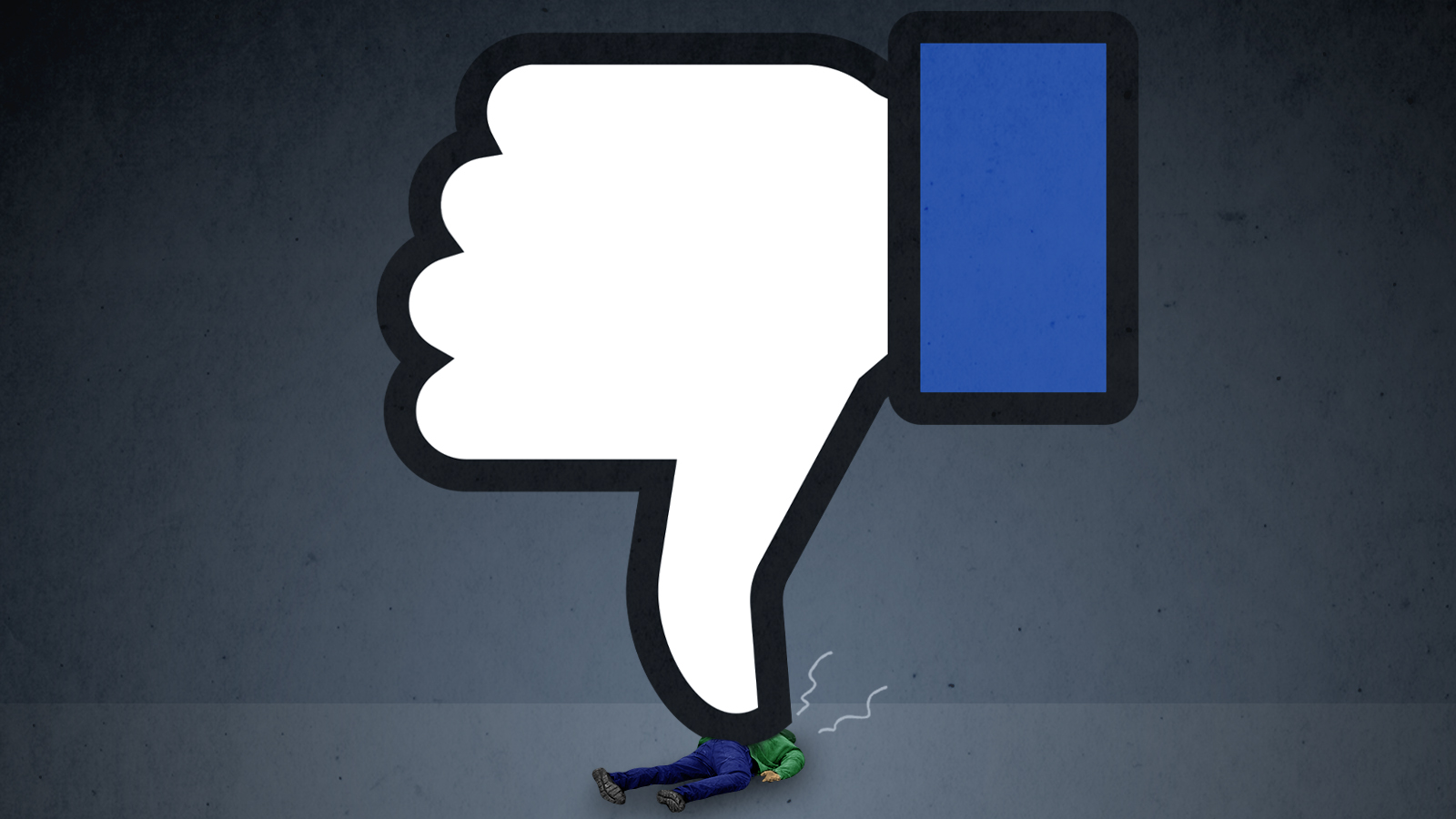Why social media can't be regulated like other media


A free daily email with the biggest news stories of the day – and the best features from TheWeek.com
You are now subscribed
Your newsletter sign-up was successful
Anyone interested in thinking through the challenge of regulating social media needs to read and wrestle with a lengthy essay by The Shallows author Nicholas Carr in the latest issue of The New Atlantis, a quarterly journal of science and technology. The essay, ambitiously titled "How to fix social media," is filled with fruitful ideas, but it also understates the challenges faced by anyone trying to respond intelligently to the threats Facebook, Twitter, and other tech platforms pose to liberal democracy.
Much of Carr's essay is devoted to sketching the history of how Americans have regulated communications technology, from the postal system and telegraph on down to cable television. As he notes, such regulation is based on a fundamental distinction between direct communication between individuals (one-to-one mailed letters, phone calls, etc.), which are protected by rules governing privacy, and public communications (broadcasting from one to many), which have usually been subject to regulation for content with an eye to fostering and protecting the common good.
The history is illuminating, especially the parts implying individual messaging should be protected from intrusion by tech companies searching for information to sell to advertisers. But that's also the simplest problem posed by social media, precisely because it mirrors the structure of postal mail and telephonic communications.
The Week
Escape your echo chamber. Get the facts behind the news, plus analysis from multiple perspectives.

Sign up for The Week's Free Newsletters
From our morning news briefing to a weekly Good News Newsletter, get the best of The Week delivered directly to your inbox.
From our morning news briefing to a weekly Good News Newsletter, get the best of The Week delivered directly to your inbox.
Social media is most politically pernicious in its role as a "broadcaster" of opinions from individual users to the public at large. Yet, to assimilate social media to the broadcasting model, Carr vastly understates the novelty of social media's broadcasting approach. Forced into that historic model, a platform like Facebook resembles a radio with billions of stations, each one run by an individual user, who decides for herself what content to post and promote. Regulating the platform is then mainly a problem of scale: How can a regulatory agency exercise oversight over so many broadcasters operating in such a sprawling digital landscape?
But that's only one dimension of the challenge. The far greater one is that the broadcast model doesn't even apply to what Facebook and other social media companies do. When I open my Facebook feed, I don't just tune a dial, maneuvering my way across neutral airwaves to find my favorite stations/users. Rather, I'm shown a series of posts custom curated to me, based on an interaction between the company's proprietary algorithm and information I've provided to the company in the form of "likes" and clicks during my previous visits. The company's overriding goal is to keep me "engaged" any way it can so advertisers can sell me products perfectly tailored to my preferences. All the pernicious political effects of social media — siloing, polarization, radicalization — follow from this way of doing business.
Can government regulate such a product without directly challenging this business model? I don't see how. Hopefully Carr will address this dilemma in future writings about how to fix our social media problem.
A free daily email with the biggest news stories of the day – and the best features from TheWeek.com
Damon Linker is a senior correspondent at TheWeek.com. He is also a former contributing editor at The New Republic and the author of The Theocons and The Religious Test.
-
 How the FCC’s ‘equal time’ rule works
How the FCC’s ‘equal time’ rule worksIn the Spotlight The law is at the heart of the Colbert-CBS conflict
-
 What is the endgame in the DHS shutdown?
What is the endgame in the DHS shutdown?Today’s Big Question Democrats want to rein in ICE’s immigration crackdown
-
 ‘Poor time management isn’t just an inconvenience’
‘Poor time management isn’t just an inconvenience’Instant Opinion Opinion, comment and editorials of the day
-
 Epstein files topple law CEO, roil UK government
Epstein files topple law CEO, roil UK governmentSpeed Read Peter Mandelson, Britain’s former ambassador to the US, is caught up in the scandal
-
 Iran and US prepare to meet after skirmishes
Iran and US prepare to meet after skirmishesSpeed Read The incident comes amid heightened tensions in the Middle East
-
 Israel retrieves final hostage’s body from Gaza
Israel retrieves final hostage’s body from GazaSpeed Read The 24-year-old police officer was killed during the initial Hamas attack
-
 China’s Xi targets top general in growing purge
China’s Xi targets top general in growing purgeSpeed Read Zhang Youxia is being investigated over ‘grave violations’ of the law
-
 Panama and Canada are negotiating over a crucial copper mine
Panama and Canada are negotiating over a crucial copper mineIn the Spotlight Panama is set to make a final decision on the mine this summer
-
 Why Greenland’s natural resources are nearly impossible to mine
Why Greenland’s natural resources are nearly impossible to mineThe Explainer The country’s natural landscape makes the task extremely difficult
-
 Iran cuts internet as protests escalate
Iran cuts internet as protests escalateSpeed Reada Government buildings across the country have been set on fire
-
 US nabs ‘shadow’ tanker claimed by Russia
US nabs ‘shadow’ tanker claimed by RussiaSpeed Read The ship was one of two vessels seized by the US military
